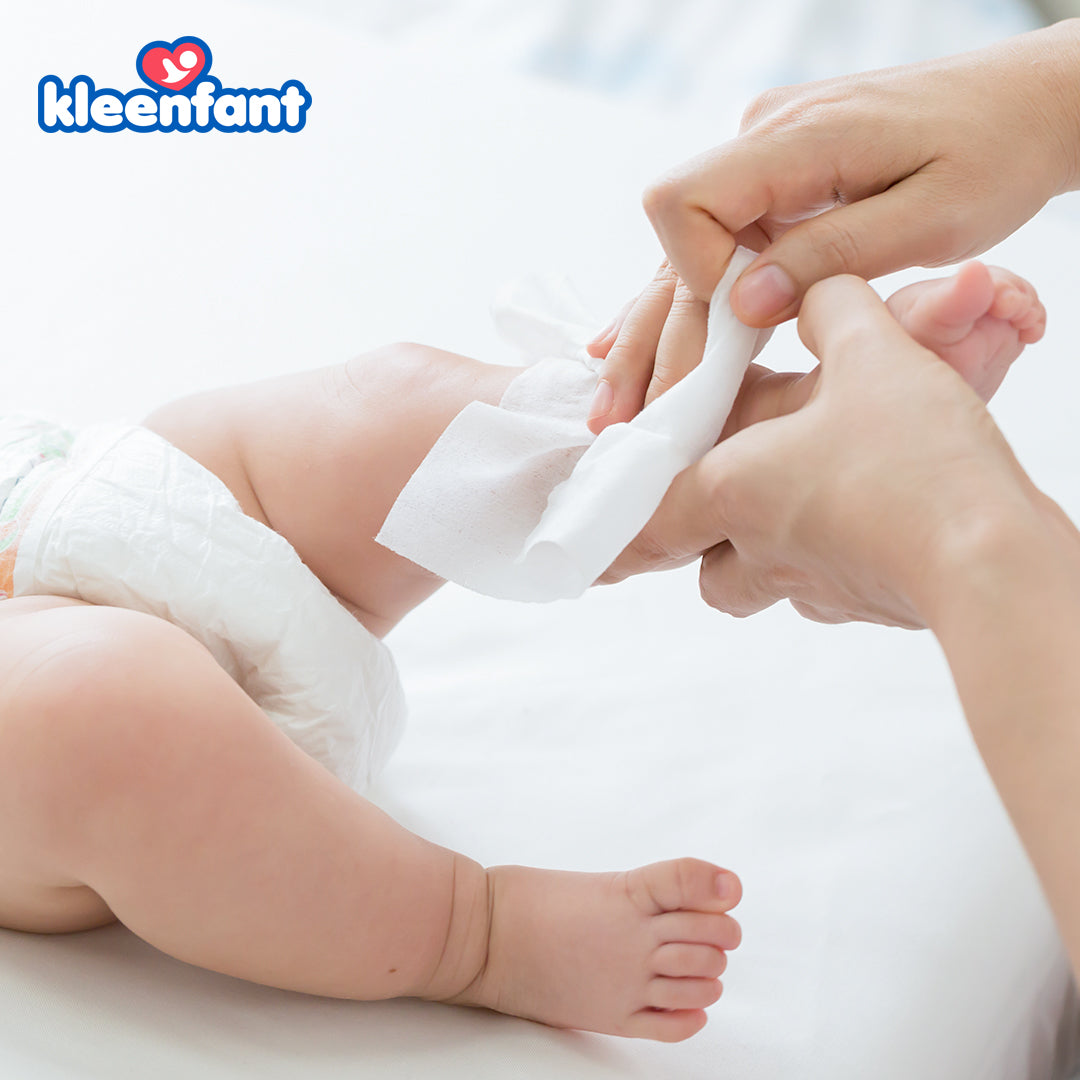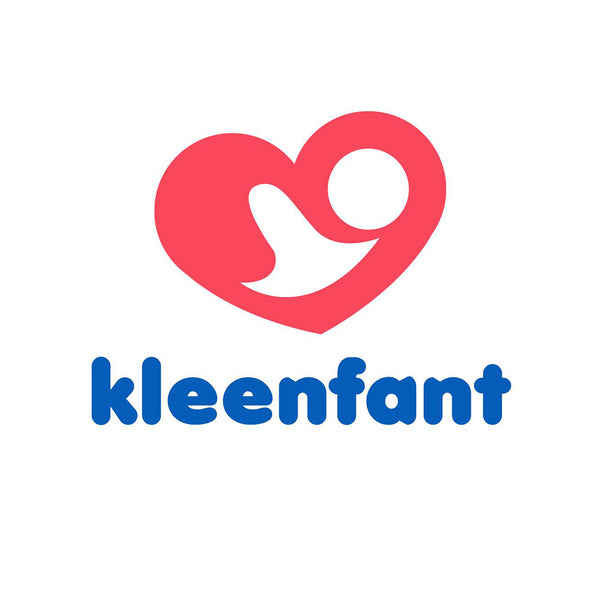Baby wipes in dozens of brands and styles are available these days. You'll find different scents, no scent at all, extra thick, all natural, refill packs, flip top packs, and more. You can even make your own. How are you supposed to choose the ones that will work best for your baby?
Of course, any type of wipes will do the job eventually, but some are better or faster at it. Here's a quick guide to buying the best wipes for your little one.
History of Baby Wipes
In the past, families used cloth scraps or store-bought cloth baby wipes that they washed and re-used. In the 1950s, some companies began to make disposable wipes that were designed for hands or other clean-up on the go. Of course, lots of parents saw those wipes as a really convenient way to clean up baby on the go, too. Wipes that were specifically branded for baby use didn't come out until the 1980s, though.
Disposable baby wipes are a necessity for most of today's parents, who use them not just for diaper duty, but also for cleaning hands and faces or wiping down surfaces at home or away.
Brand Name vs. Generic Baby Wipes
Store brand or generic products are cheaper, so many families use them to save money. When it comes to baby wipes, though, store brands can leave something to be desired. Some are just too thin to do the job effectively, which means you end up using twice as many. That takes away from any initial savings on the wipes package. Some store brands or generic wipes have a strange, slippery texture that makes it hard to clean baby effectively.
Among the major brands, the quality is pretty much the same across the board. Some of the brand name baby wipes have multiple scent offerings. You can bring the cost of brand name baby wipes down so it's comparable to the store brands by using coupons. Stores that offer double coupons are a good bet for the best price.
Scented vs. Unscented Baby Wipes
Before you go too wild on selecting the scent of baby wipes you prefer, make sure your baby doesn't have super-sensitive skin. Some babies can't handle fragrance on their diaper area, or anywhere against the skin. For these babies, unscented wipes are the better choice.
Among the scented baby wipes varieties, the best choice is a matter of personal preference. Wipes that have a heavy fragrance may be off-putting to some parents, though.
How to Care for Your Premature Baby's Skin
Tips for Buying Baby Wipes in Bulk
As with most consumable baby products, the more baby wipes you buy, the better the price. The biggest packages offer the best cost per wipe. You can find jumbo boxes of baby wipes at warehouse stores, such as Costco or Sam's Club. If you don't want to store quite that many baby wipes, most department stores, and baby stores offer multi-packs of wipes for a pretty good price.
Before your baby arrives, don't buy the giant packages of wipes. If your little one ends up with a skin sensitivity, you could end up stuck with hundreds of baby wipes you can't use. The same goes for trying a new brand or type of baby wipes. Buy a smaller package first to make sure they're going to work for you and baby.
Online stores and some brick and mortar stores now offer delivery of consumable baby products, wipes included. That means you can buy bulk packages of wipes, often at reduced prices, that will arrive at your doorstep.
Baby Wipe Container Types
The most common type of baby wipes container is a plastic box with a flip-up lid. The wipes inside pop up through the lid so it's easy to grab them with one hand while changing a diaper. You can buy refill wipes for pop-up containers, too. These big plastic bags of wipes cost a little less than just buying a new plastic box each time, and they don't take up much room to store.
Some types of pop-up baby wipes come in a flexible plastic bag that has a rigid flip-up top. It's convenient to buy these wipes because you don't have to bother with refilling them. Just toss the old one out and grab a new container. However, the plastic can make loud crinkling sounds when you're trying to get the wipes out, which could make night-time diaper changes less soothing. The wipes can bunch up toward the end of the package if you carry them around in a diaper bag.
It's easy to mistake multi-packs of these wipes for the refill packages that go into the plastic boxes. If you're looking for refills, make sure to read the package carefully to be sure it's not actually separate containers within the bag.
Travel Wipes
Travel packages of baby wipes usually come in two types of containers. The first is a rigid plastic box that opens up in some way to allow access to the wipes. These travel boxes can be refilled with the same pop-up wipes you're using at home. This kind of travel pack is convenient because some diaper bag, diaper clutches, and quick-change stations have a built-in spot for the container, so it forms a wipes dispenser.
What to Pack in Baby's Diaper Bag
The second type of travel wipes come in a plastic bag, usually with a sticker-type top. They're great for stashing in a diaper bag and don't take up much room, but the sticker tops tend to lose the ability to stay shut by the tail end of the package.
Extra-Thick Wipes
If you like to know there's as much material as possible between you and baby poo, extra-thick wipes are a perfect choice. The feel of the thicker wipes is preferable to many parents, and there's definitely no concern about any yuck leaking through with them.
Specialty Wipes
For babies who are prone to diaper rash, some companies now make wipes with soothing ingredients built in, or plain water wipes. Other companies make wipes that are supposed to break down more quickly in the landfill. Some, such as WaterWipes, are made with natural or organic ingredients.
These specialty wipes tend to cost more than other baby wipes. However, if you have a rashy baby or an organic lifestyle is important to you, the cost may be worth it.
Flushable Wipes
Flushable wipes are usually geared toward potty-training toddlers but may be useful for families who use hybrid diaper systems with flushable inserts. These wipes often come in a plastic flip-top box, just like regular baby wipes, and sometimes have refill packs available.
Be careful about flushing very many wipes at one time, though. If your septic system can't handle the thicker wipes, you could be in for an expensive plumber's bill. Use caution when trying these out. Flush just a few at a time and watch for clogs or slower drainage.
Reference:
Corley, C. (2020, November 21) How to Choose the Best Baby Wipes. Retrieved from https://www.verywellfamily.com/how-to-choose-the-best-baby-wipes-293830

